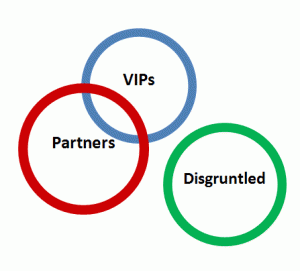It was really nice spending the last few months with my newborn baby. As every parent I know tells me, “Kids grow up so fast! Cherish this time!” But in between the joy and wonders of being a mom, a part of me missed the excitement from the constantly changing online social media landscape. So when I came out of the hiatus, I was glad to find a major development on the horizon: the Google+ project. According to Google, the project is supposed to “make sharing on the web feel like sharing in real life”.
After receiving a Google+ invitation from a friend, I immediately started digging into it to see if it has more potential than Google Wave, the once hyped product that has since retired into the background. My first impression when getting onto Google+ was: this looks a lot like Facebook! But after looking into it a little further, I started to see several critical differences between Google+ and the Facebook concept. I don’t plan to get into all that in this post, as there are many great articles out there discussing the Google+ concept. Instead, I want to share with you how Google+ can potentially evolve into a great tool for managing customer relationships in the online social media space.

The Old Way
To do that, let us first look at how brands now engage consumers on Facebook. Most likely, this is done through a Facebook page, where consumers can “like” a brand to show their appreciation and support of the brand. Through such a page, a business can share information such as useful articles and upcoming promotions with consumers, and at the same time consumers can interact with the business and other consumers by asking questions and posting comments. This is all good, but it happens in a very undifferentiated fashion. Everyone on a brand’s Facebook page sees exactly the same information, and a business needs to sift through tons of questions and comments to identify the priority issues that need to be addressed. This is neither very effective nor efficient. Continue reading “Google+ Circles for Managing Customers”